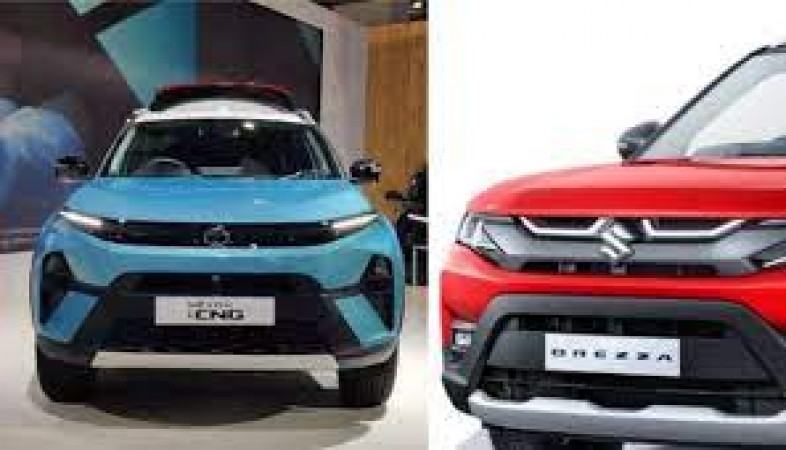
In today's rapidly evolving automotive landscape, the discussion around sustainability and alternative fuels has taken center stage. Two notable contenders in this arena are the Nexon ICNG and the Brezza CNG. Amidst this transition towards cleaner energy options, a pertinent question arises: Will diesel engines be replaced entirely? Let's delve deeper into the intricacies of these CNG variants and explore the future of diesel engines in the automotive industry.
The Nexon ICNG, a compressed natural gas variant of Tata Nexon, represents a significant stride towards sustainability in the automotive sector. It embodies Tata's commitment to eco-friendly mobility solutions while maintaining the robust performance associated with its brand.
While the introduction of Nexon ICNG may contribute to a gradual decline in diesel vehicle sales, it is unlikely to result in the immediate replacement of diesel engines altogether. Diesel-powered vehicles still serve specific niches, such as commercial fleets and long-distance transportation, where their high torque and fuel efficiency are valued. Additionally, the transition towards cleaner energy options is a gradual process that requires infrastructure development, consumer education, and regulatory support.
Maruti Suzuki's Brezza CNG variant exemplifies the industry's commitment to embracing clean energy solutions. By offering a CNG option for its popular SUV model, Maruti aims to cater to the evolving preferences of consumers who prioritize environmental sustainability and cost-effectiveness.
Similar to the Nexon ICNG, the introduction of the Brezza CNG variant may influence consumer preferences and gradually reduce the demand for diesel-powered vehicles. However, diesel engines are unlikely to be replaced entirely in the near future. They continue to play a vital role in commercial applications, such as heavy-duty trucks and commercial fleets, where their torque and fuel efficiency are indispensable.
Rather than facing outright extinction, diesel engines are expected to evolve and adapt to the changing automotive landscape. This evolution may involve advancements in technology, such as cleaner diesel engines with improved emissions control systems and enhanced fuel efficiency.
Diesel engines are likely to coexist alongside alternative fuel options, such as CNG, hybrid, and electric vehicles. Each fuel type serves different market segments and application requirements, catering to diverse consumer preferences and regulatory mandates.
The automotive industry is undergoing a gradual transition towards hybrid and electric vehicles as part of efforts to reduce greenhouse gas emissions and dependence on fossil fuels. While this transition may impact the dominance of diesel engines in certain segments, they are expected to remain relevant in applications where their unique characteristics are valued.
In conclusion, while the introduction of CNG variants like Nexon ICNG and Brezza CNG signifies a significant shift towards cleaner energy alternatives, diesel engines are unlikely to be replaced entirely in the automotive landscape. Instead, they will continue to coexist alongside a diverse range of powertrain options, catering to the varied needs and preferences of consumers. The future of diesel engines lies in their ability to evolve, adapt, and complement emerging technologies, ultimately contributing to a more sustainable and balanced automotive ecosystem.
Which lipstick shade to wear with which outfit, know here
You will get a celebrity look on Valentine's Day, just style your denim dress like this
Banita Sandhu Shines with Classic Elegance: A Closer Look at Her Timeless Fendi First Clutch